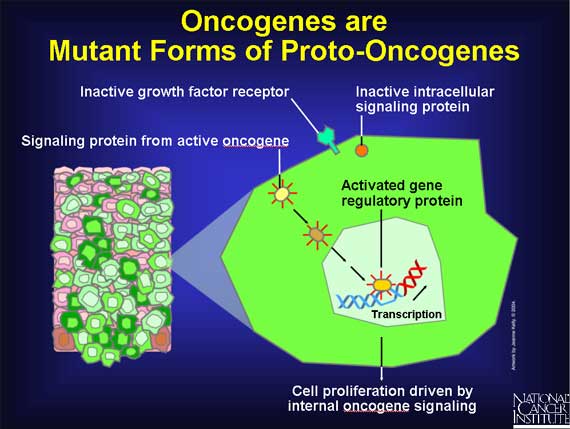|
Oncogenes arise from the mutation of proto-oncogenes. They resemble
proto-oncogenes in that they code for the production of proteins involved in
growth control. However, oncogenes code for an altered version (or excessive
quantities) of these growth-control proteins, thereby disrupting a cell's
growth-signaling pathway.
By producing abnormal versions or quantities of cellular growth-control
proteins, oncogenes cause a cell's growth-signaling pathway to become
hyperactive. To use a simple metaphor, the growth-control pathway is like the
gas pedal of an automobile. The more active the pathway, the faster cells grow
and divide. The presence of an oncogene is like having a gas pedal that is
stuck to the floorboard, causing the cell to continually grow and divide. A
cancer cell may contain one or more oncogenes, which means that one or more
components in this pathway will be abnormal.

< Previous | Index | Next Slide > |